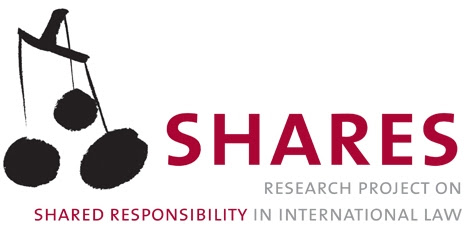Posted by: Nollkaemper André
On 3 May, the Procurator General of the Supreme Court of the Netherlands (mr. P. Vlas) concluded in his so-called ‘advisory opinion’ that the appeal against the Judgment of the Court of Appeal of the Hague, which found that the Netherlands was liable for evicting Bosnian nationals from the compound of Dutchbat in Srebrenica on 12 July 1995, should be rejected. The main task of the Procurator General of the Supreme Court of the Netherlands is to provide independent advice (known as ‘advisory opinion’) to the members of the Supreme Court on how to rule in the cassation proceedings that are before the Court.
The advisory opinion is very rich in legal analysis of questions of shared responsibility. It cites no less than four papers written as part of the SHARES Project, and will be commented upon more fully at a later stage. A few quick points that stand out will be identified below.
The core issue in the advisory opinion is the basis for attribution of conduct to a troop-contributing State and/or the UN. On this point, the Procurator General rejects the argument of the State of the Netherlands (identical to the position of the UN) that attribution of conduct is governed by Article 6 rather than 7 of the Articles on the Responsibility of International Organizations (ARIO). Thus, attribution is governed by the standard of effective control, as stipulated in Article 7 (par. 4.10, par. 5.4).
Critically, Vlas then rejects the argument of the Court of Appeal that Article 7 allows for dual attribution. He cites Crawford and Olleson for the proposition that the purpose of Article 7 ARIO ‘is not to determine whether particular conduct is attributable as such, but rather it addresses the question of to which of two entities (the “borrowing” international organization or the “lending” State (or international organization), the conduct is to be attributed’ (par. 4.12). Vlas thus construes Article 7 as a ground for exclusive responsibility, not allowing for ‘independent responsibility’ of the troop contributing State (par. 4.13).
It can be observed that the analysis of Article 7 is rather thin, and does not address the strong support for the possibility of dual attribution. This observation also sits uneasily with a later part in the advisory opinion (see below), where Vlas does recognise the possibility of shared responsibility.
In any case, this reasoning differs significantly from that of the Court of Appeal. Not only had that Court expressly left open the possibility of dual attribution, but it also held that for determining who is responsible, it needed to be determined whether or not the State exercised effective control. For the Procurator General, the former point is incorrect and the latter question is irrelevant. If the UN exercises effective control, it is exclusively responsible. If it does not exercise effective control, the State retains responsibility, without a need to show effective control. This also means that Vlas did not see a need to discuss in his advisory opinion the (innovative) argument of the Court of Appeal based on the ability to prevent.
Whereas at this stage of the reasoning the fate of the Judgment of the Court of Appeal looks unhappy (and the advisory opinion accepts the relevant ground for cassation), the Procurator General does reject the appeal aimed at annulment of the Judgment of the Court of Appeal.
This rejection is based on two grounds. On the one hand, the Procurator General concludes on the facts that in the critical days of 12 and 13 July 1995, the UN did not actually exercise effective control (par. 5.10). Since the UN did not exercise effective control, the Netherlands ‘resumes’ its own responsibility.
Second, Vlas concludes that in the context of the evacuation of refugees and the withdrawal of the troops after the fall of the safe area, the State had an own, independent authority over Dutchbat, that encompassed command and control. On this point Vlas notes, in a factual account which stays close to the assessment by the Court of Appeal, that the government of the Netherlands actually had taken its responsibility by giving orders.
Significantly, it is then stated in the advisory opinion, with reference to literature published in the context of the SHARES Project, that in such circumstances it can be argued that both the UN and the State exercised parallel control. And, in cases of breaches of obligations, there can be a ‘shared responsibility’, whereby the State is responsible for its own conduct (through Dutchbat), and responsibility would also rest on the UN for the conduct of the organisation (par. 5.14). This reasoning, commendable for its recognition of the possibility of shared responsibility, will be commented upon later in the context of the SHARES Project.
On the questions of wrongfulness, the most interesting point in the advisory opinion is the finding that the presence of the victims on the compound of Dutchbat was sufficient to bring them under the jurisdiction of the Netherlands (par. 5.30).
The Supreme Court is scheduled to deliver its judgment on 6 September 2013.
